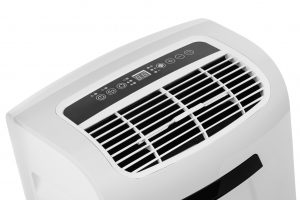Disadvantages of Portable Air Conditioners: What You Need to Know
In the scorching heat of summer, portable air conditioners provide a breath of fresh, cool air in your home. They’re a convenient and cost-effective solution to beat the heat without the need for a centralized cooling system. However, like any other appliance, portable air conditioners come with their fair share of drawbacks. In this article, we’ll explore the disadvantages of portable air conditioners and help you make an informed decision when it comes to cooling your living space.
1. Limited Cooling Capacity
One of the primary disadvantages of portable air conditioners is their limited cooling capacity. These units are typically designed to cool small to medium-sized rooms, making them unsuitable for larger spaces. When tasked with cooling a room beyond their capacity, they tend to struggle, leading to inadequate cooling and higher energy consumption. This limitation can be frustrating, especially during the peak of summer when you need consistent and powerful cooling.
Lack of Cooling Efficiency
Portable air conditioners are less efficient when compared to their window or central air conditioner counterparts. Since they’re not permanently installed in your home, there is often some level of air leakage around the exhaust hose and window kit. This leakage can result in a less efficient cooling process, leading to increased energy bills. Moreover, portable air conditioners tend to be less energy-efficient overall, which can be a disadvantage if you’re concerned about your carbon footprint and energy costs.
2. Noise Levels
Another drawback of portable air conditioners is the noise they generate. While they are not as loud as some older window units, they can still be noisy, especially if you’re using them in a bedroom or a quiet living space. The noise comes from the compressor, fan, and the air moving through the unit. Some models are quieter than others, but it’s essential to consider noise levels when choosing a portable air conditioner, especially if you value a peaceful and quiet environment.

Draining and Maintenance
Portable air conditioners require regular maintenance, including emptying the condensate water collected during the cooling process. Neglecting this maintenance can result in spills and water damage to your flooring. Additionally, you may need to clean or replace the air filters and ensure the exhaust hose remains free from obstructions. These maintenance tasks can be a hassle, and if ignored, they can impact the unit’s performance and lifespan.
3. Mobility and Installation
While portability is one of the key advantages of these air conditioners, it can also be a disadvantage. Moving the unit from one room to another can be cumbersome, as you’ll need to deal with the exhaust hose and window kit each time you relocate it. Moreover, installing the window kit can be tricky and time-consuming, and it may not fit all window types, which can limit your placement options. If you plan to use a portable air conditioner in multiple rooms regularly, this setup and teardown process can become quite tiresome.
Cost Considerations
Initially, portable air conditioners may seem like a cost-effective solution compared to installing a central air system. However, over time, the costs can add up. These units tend to have a shorter lifespan than traditional air conditioners, and they can consume more energy due to their lower efficiency. Additionally, if you need to purchase multiple units to cool different rooms, the cumulative cost can be higher than you initially anticipated.
4. Aesthetics and Space
Portable air conditioners can be an eyesore in your living space. Their design is functional but not always aesthetically pleasing, and they take up valuable floor space. If you have limited space or prefer a more seamless interior design, the presence of a portable air conditioner can be a disadvantage.

Environmental Concerns
The refrigerants used in portable air conditioners can contribute to greenhouse gas emissions, which can harm the environment. While efforts have been made to develop more eco-friendly refrigerants, not all portable air conditioner models use them. If environmental sustainability is a concern for you, it’s essential to research and select a model that uses environmentally friendly refrigerants.
5. Limited Cooling Zones
Portable air conditioners can only cool specific zones or rooms where they are installed. This means that if you have a large house with multiple rooms, you may need to purchase and install multiple units to achieve the desired cooling throughout your home. This can be costly and impractical, making central air conditioning a more efficient choice for cooling an entire house.
Conclusion
While portable air conditioners offer several benefits, including affordability and mobility, it’s crucial to be aware of their disadvantages before making a purchase. Understanding their limitations in terms of cooling capacity, efficiency, noise, maintenance, and installation can help you decide whether a portable air conditioner is the right cooling solution for your specific needs. Consider your budget, the size of the area you need to cool, and your personal preferences when deciding whether the advantages outweigh the disadvantages for your unique situation. Find where you can buy small air conditioners here.


